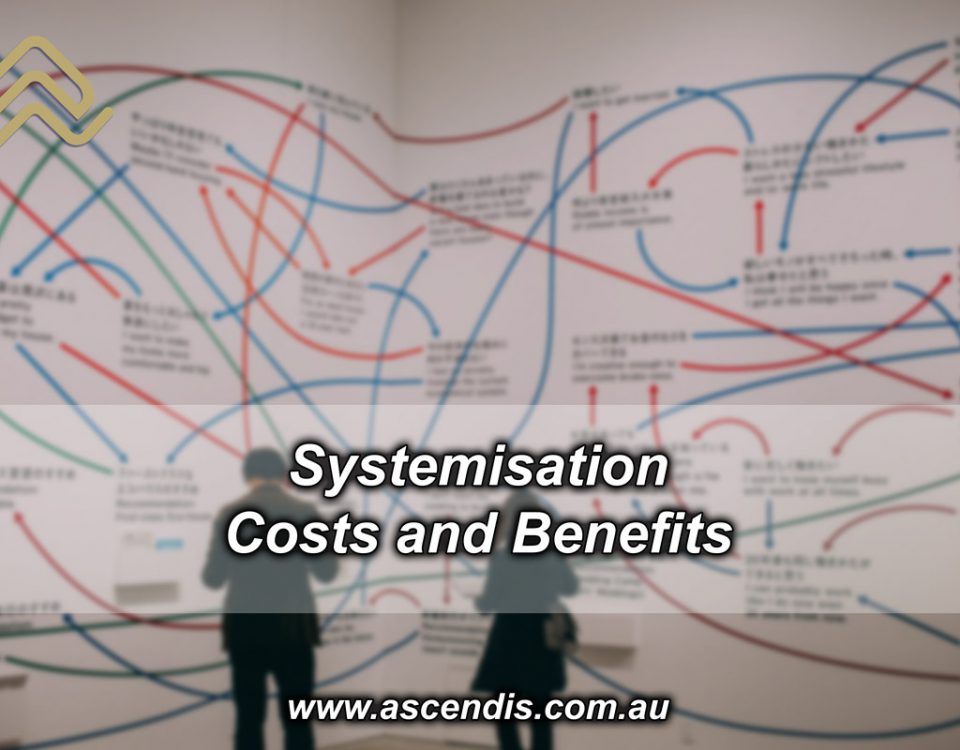Make Your Financial Management Move Now

Systems and Strategy Before Sales
17 March 2019
Decision Making – Outcomes not Costs
16 December 2019
It's that time of year again in Australia, the end of the financial year. This is the easiest time to make changes, particularly to the aspects of the financial management of your business.
Right now is the time to plan and prepare, not tomorrow.
One area worth looking at is your Chart of Accounts. I don't know why but I've seen numerous companies with turnover into the tens of millions yet their Chart of Accounts is not designed around their business.
Clean up your Chart of Accounts and Make it Work For You
This is the core of how you look at your financial information. There will be ways to identify different revenue streams for your business. Often these would be as you present your products or services to the market, how you categorise them for your customers if they were to look at a list of what you offer. Include a clear and complete way to see the costs with earning each of these revenue streams through the Cost of Sales (or COGS) accounts. Include all labour costs as too. Often companies allocate this fully to an Overhead Wages and Salary account which doesn't provide you any real indication of how much gross profit is generated by your different revenue streams.
You can make far better decisions if you know why your customers buy from you, what they're buying and how much each of these areas cost and how much profit they generate. You can decide where to invest marketing funds or other efforts, how to utilise your resources, where improvements may be made and what any spare capacity may be used for.
Use job, project, cost or department codes depending on the software you use. Areas, locations etc shouldn't form a part of your Chart of Accounts but use these other forms of analysis where possible.
Do you need to look at your software?
Is your current software meeting your business needs, and does the cost feel right for it? Sometimes the software was selected for your previous business needs and not what you're needing now. Too many accountants and bookkeepers recommend software for personal reasons, for their own comfort and convenience, not for yours and your needs. This is the time to think about it as it's easier to plan the switch to coincide with a new financial years.
Larger business can find it harder to change and cost can be affected by many aspects. Software cost itself is a smaller aspect whereas implimentation, efficiency to use, automation and integration become more significant factors to consider.
Are you holding inventory or even manufacturing and is your current software up to the task? Or do you use other software that is but doesn't integrate well enough with your accounting software? Your staff payroll also might be a functional need to look at if this isn't adequate in your current software. Asset management, depreciation, tracking and maintenance might also be an issue to address.
Your software must work for you.
Have you effectively applied accrual accounting?
It is rather rare that I walk into a new client and find accurate reporting information. I usually deal with clients up to $20M annual turnover and even these usually can't provide accurate, regular financial reporting. I'm not talking about year end accounts produced for the ATO. I mean monthly reports for the business managers to make informed decisions. Regular reports that reflect what has been happening and is expected to happen for the business.
Every single management reporting period the accrual adjustments must be made. These don't take into account the ATO allowances or rulings. It's not about how much you can write-off from capital purchases or anything like that. The IFRS (International Financial Reporting Standards) will certainly apply as these have been developed for producing understandable, comparable, reliable and relevant reports for the reader, not for a taxation body.
Without applying all material accrual adjustments you're reports are simply not accurate. For true accuracy all these adjustments are needed for items such as prepayments, accrued expenses, unearned income such as deposits, work in progress, depreciation and amortisation, as well as provisions for leave or tax.
Now information is becoming meaningful.
Planning and Budgets
Now you can look at the year ahead. Think about and understand where you want to take the business. If there's going to be capital expenditure you can use the cash flow forecast to see how this may impact it, how it can be financed and what the options may be. You can use historic information to help predict the future. Consider trends, seasonal aspects of your business or anything else that can work alongside your plans to foresee and plan ahead.




